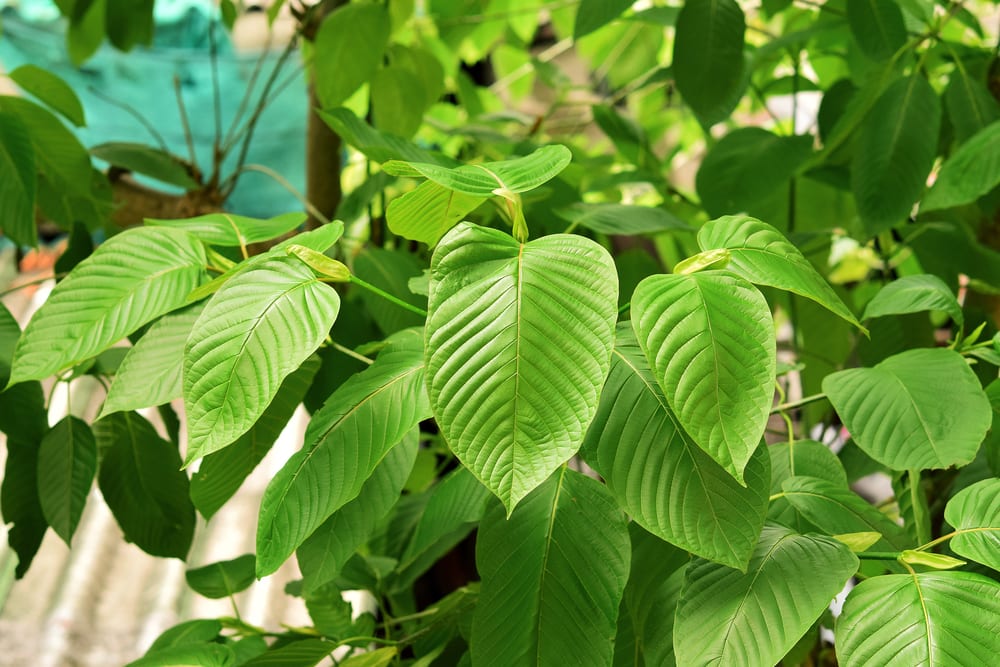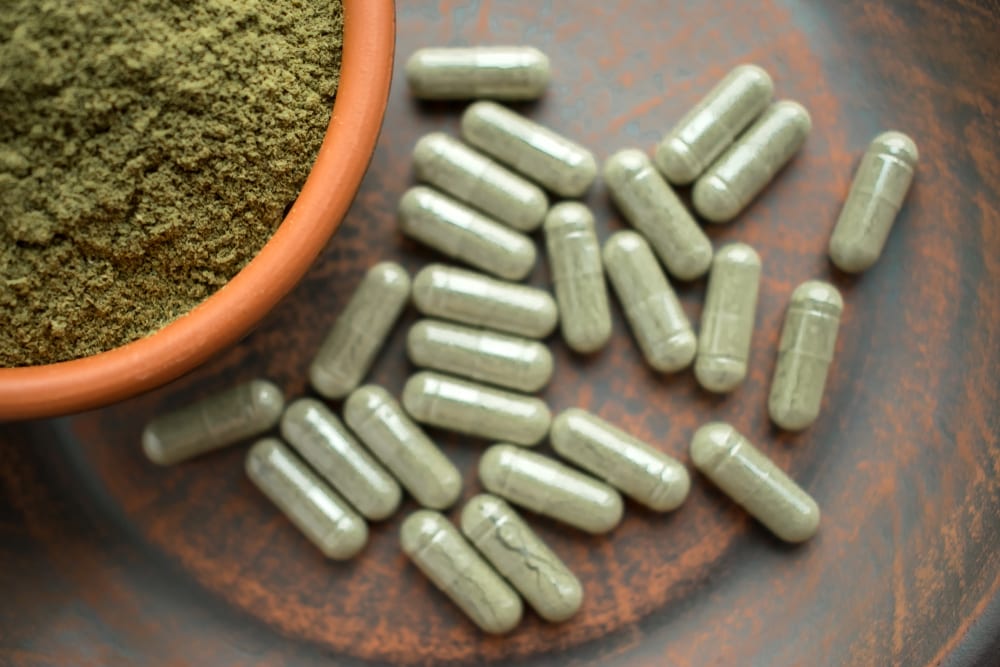
As the opioid epidemic rages in the United States, the Food & Drug Administration has issued new warnings about kratom. Many people have begun talking about this widely used, natural supplement and its benefits and potential risks. Native to Southeast Asia and a member of the coffee family, kratom is seen by many as an all-natural supplement to help in a myriad of physical and mental ailments. Some of the purported uses include treatment for:
- Pain-management
- Opioid withdrawal symptom relief
- Depression
- Obesity & high blood pressure
- Anxiety
- As an energy boost
But many scientists and the FDA disagree with these claims. In a statement from September 11, 2018, FDA chairman Scott Gottlieb, M.D. claims:
“Science and evidence matter in demonstrating medical benefit, especially when a product is being marketed to treat serious diseases like opioid use disorder (OUD). However, to date, there have been no adequate and well-controlled scientific studies involving the use of kratom as a treatment for opioid use withdrawal or other diseases in humans. Nor have there been studies on how kratom, when combined with other substances, may impact the body, its dangers, potential side effects, or interactions with other drugs.”
While there may have not been adequate study to substantiate either side of these claims, many leading scientists and addiction specialists are championing the concerns as expressed by the FDA.
To begin, the agency claims that kratom contains opioids, which is not entirely true, yet the relationship is virtually undeniable. Mitragyna speciosa is a tree related to the coffee plant, which is not from the poppy family, but according to the National Institute on Drug Abuse (NIDA), some compounds found in kratom affect opioid receptors in the brain. Perhaps this is why many sufferers of opiate addiction swear by its usefulness in helping manage their withdrawal symptoms. Unfortunately, the reasons for this are certainly indicative of the strong potential for addiction to kratom. Because kratom affects the same brain receptors as opioids do, it is essentially like substituting one opioid addiction for another one.
UPDATED APRIL 14TH, 2020
Kratom exhibits a high potential for abuse and can lead to further opioid addiction.
In a study published by Addiction Biology in June of 2018, one of the two psychoactive compounds in Kratom, 7-hydroxymitragynine (or 7-HMG) has a “high abuse potential that may also increase the intake of other opiates”. The study showed that the other of the 2 psychoactive constituents, Mitragynine (MG) does not have a high potential for abuse and can actually decrease subsequent opiate intake. Since kratom is a plant, certain strains can be bred to intentionally have more 7-HMG than occurs naturally, so someone that uses kratom should be warned. The harvesting and extraction of the plant before it is packaged can also be adulterated to some extent. This could pose dangerous consequences to unsuspecting users of kratom extracts and supplements.
The safety of kratom is a major concern that has been taken into account by the FDA. In November 2017 the FDA claimed that kratom was responsible for 44 deaths since 2011. These reports hold true the assessment that kratom is an addictive drug, with a high potential for abuse that can create various health problems, including death.
These same government agencies are also warning that kratom can deter people from seeking medication-assisted treatment (MAT) such as buprenorphine, naloxone and methadone. These substance abuse treatment medications are scientifically proven to reduce opioid dependence in addicts:
“Patients who were using opioid agonist medications at the 18-month interview were more than twice as likely to report abstinence as those who were not (80.0 percent versus 36.6 percent).” –National Institute on Drug Abuse (NIDA)
With this evidence aside, many people are currently using kratom as a self-administered, step-down treatment for opioid dependence. They might think this will help them steer away from opioid drugs like heroin, yet there is no research-based evidence to back up these claims.
Kratom is fairly unregulated in the US and as a result potential dangers associated with the product certainly do exist. For instance, nine of the 44 kratom-related deaths the FDA claims in their report, were from a string of overdoses in Sweden, where a mixture of kratom and tramadol (4) was the culprit. While the FDA tries to classify kratom as an opiate, they may be only partially right. Compounds in the plant affect the same areas of the brain as poppy-based opiates do.
The compounds in the plant have been shown to trigger respiratory depression, much like opioids do. This affects the brains’ ability to tell the lungs to breathe and is ultimately how many people die from opioid overdoses. They simply quit breathing, which can result in their untimely death.

Withdrawal symptoms associated with kratom further prove its addictive properties.
Just like most other drugs, kratom can result in a chemical dependency, when taken over a period of time. When a person quits using kratom, they can experience painful withdrawal symptoms. The side effects of kratom withdrawal can include: anxiety, aggression, nausea, vomiting, irritability, depression and even seizures.
Kratom is an absolutely harmful drug whose dangerous risks far outweigh any perceived benefits. Poison control center calls concerning kratom increased ten fold from 2010 to 2015. Just like other drugs, kratom must be taken in higher and higher doses to produce the desired effects over any period of use. Your body can develop a tolerance to kratom much like it can for opioids.
Since the market is relatively unregulated, different batches of kratom can be wildly different from the next, even when it comes from the same brand. This is why many kratom consumers themselves, actually advocate for better regulation of the supplement. They want whole, pure leaf supplements that are not adulterated with other compounds, as these mixtures can be extremely dangerous.
While kratom exhibits a potential for abuse and addiction, many people still make illegitimate claims on the benefits of the plant. Some people are led to believe that it can help treat opioid addiction, then they find themselves addicted to kratom. Hopefully with more research being done, we can fully understand the potential dangers of this natural supplement.






